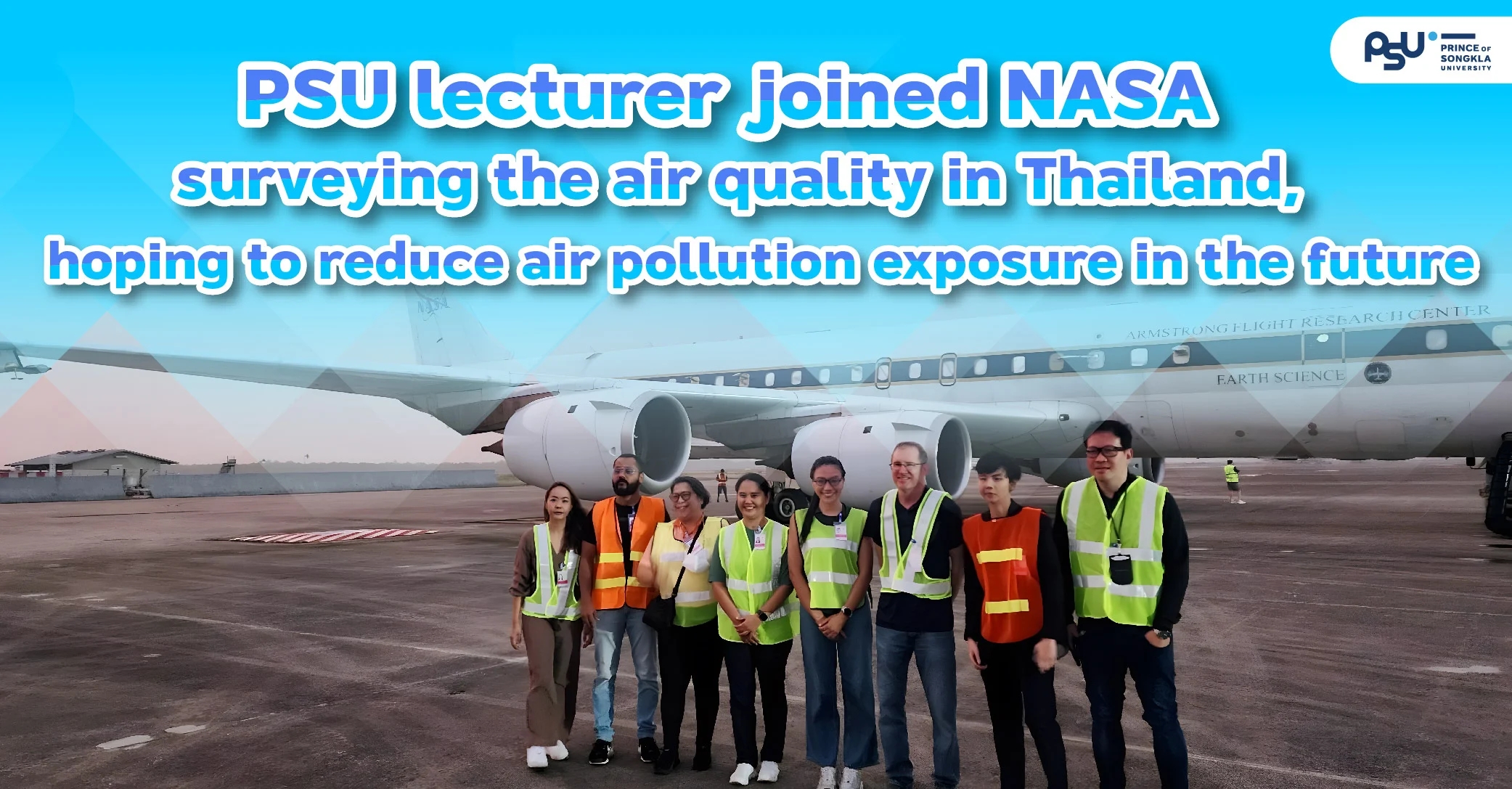
On 16-26 March 2024, at U-Tapao International Airport in Rayong province, the National Astronomical Research Institute of Thailand (NARIT), under the Ministry of Higher Education, Science, Research, and Innovation (MHESI), collaborated with NASA to study air pollution issues in Thailand as part of the Airborne and Satellite Investigation of Asian Air Quality (ASIA-AQ) project. The aim was to collect air samples above Thai airspace, understand the origins of PM 2.5 dust particles, and formulate long-term solutions for Thailand. In this mission, PSU had a privilege to have Dr. Chomsri Choochuay from the Faculty of Environmental Management participate in this mission.



Dr. Chomsri stated that 10 years ago, NASA attempted to collect air quality samples in Thailand, but the mission failed. This time, GISDA and NARIT are the key roles in Thailand. With a keen interest in solving air pollution issues, she has been involved in many related projects before she had the opportunity to participate in the ASIA-AQ project. Currently, researchers can only collect fundamental samples through satellite imagery. However, the missing knowledge lies in the middle layer of the atmosphere. Hence, it was a great opportunity for NASA to bring a DC-8 aircraft, the largest flying laboratory in the world, to operate flights above Thai airspace from U-Tapao International Airport to Chiang Mai, providing information on various chemical compounds in the air. Additionally, the G-III aircraft will be mapping air pollution maps covering the entire Bangkok metropolitan area.




Dr. Chomsri added that currently we have only basic level and satellite surveys. Therefore, when we add on airborne surveys, it will fill a missing gap and enhance the accuracy of air pollution prediction models that benefit the implications for policy-making. If there is a likelihood of increased air pollution in the next few days, we will proactively manage how to mitigate or prevent exposure and future health issues resulting from air pollution.




"Overall, the air quality in Thailand ranges from moderate to poor, varying at different times. Especially now, it clearly shows that the air quality in Thailand is relatively worse compared to over a decade ago, as indicated by global air quality rankings. Particularly, Bangkok and Chiang Mai rank consistently at the top. This means our air quality is truly poor. The role of significant factors, such as our behavior and lifestyle, including vehicle emissions and open burning in urban and agricultural areas, is undeniable. Another issue we cannot overlook is cross-border pollution."


Dr. Chomsri concluded that on behalf of PSU, the participation in NASA's ASIA-AQ project earned national and international cooperation, encountered brilliant researchers around the world who came with NASA, leading to more potential future collaborations on joint research within Thailand and abroad. Hence, PSU will play a part in environmental management, especially regarding air pollution, despite the southern region not facing air pollution issues as severely as the northern or central regions. Nonetheless, it is considered a great privilege to have the opportunity to contribute to this project.

